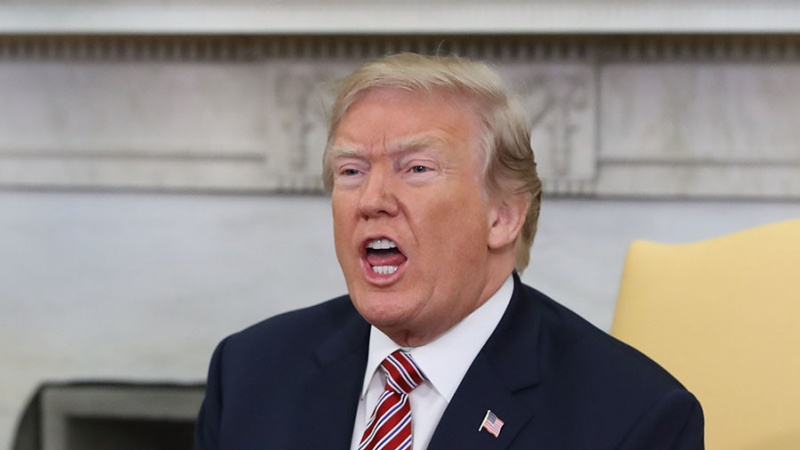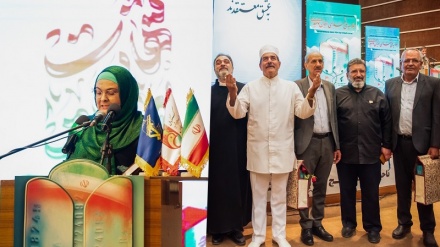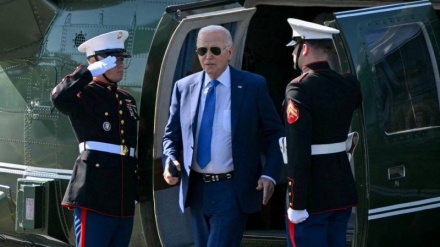Trump’s futility of tough talks against Iran
A crisis in relations between the US and Iran is building rapidly as US President Donald Trump threatens to withdraw the US from the Iran nuclear deal in just over two weeks’ time.
Trump is demanding that Iran renegotiate the terms of the agreement which is internationally signed by the five permanent members of the UN Security Council plus Germany. The White House sounds as if it has already decided to exit the agreement, which Trump persistently denounced before and after his election as “the worst deal in the world”.
But he has put forward no alternative to what was successfully negotiated by President Barack Obama in 2015 other than a series of demands with which Iran is unlikely to comply, and appear designed to put the blame for the US action on Iran. US officials themselves admit that Iran has so far abided by the terms of the 2015 accord.
A more openly confrontational posture by the US towards Iran would achieve very little, unless Washington replaces the attempt to achieve its ends by diplomacy with sustained military action. Iran is already on the winning side. It is closely allied to the Iraqi and Syrian governments and to reverse the balance of power in the region, the US have turned to sustained military intervention.
Iran may have already decided that the deal cannot be saved considering the US bullying gesture and continued violations of the international approved JCPOA. Iranian president Hassan Rouhani warned Trump just recently that the US must stay within its terms which Tehran signed with the P5+1 group of countries or face “severe consequences”. Rouhani said in a live broadcast on state television that: “I am telling those in the White House that if they do not live up to their commitments, the Iranian government will firmly react.”
The Iranian Foreign Minister Mohammad Javad Zarif said at the weekend that it was “highly unlikely” that Iran would remain in the agreement – to which Russia, China, France, Germany and Britain are also signatories – if the US pulled out. He added that Iran might immediately begin enriching uranium, but it would not develop a nuclear device.
European leaders are trying to save the deal which Trump has denounced as full of “terrible flaws”, but this will prove difficult as the US president is totally ignoring his predecessor’s approval stamp. Trump’s violation talks for itself that the next US president may come up with new terms for new version of bullying. Trump thinks of stopping Iran’s totally defensive and deterrent ballistic missile program, stressing arbitrarily for more intrusive inspections by nuclear inspectors. This is while, the International Atomic Energy Agency, IAEA, has several times underlined Iran’s complete abidance with the nuclear deal terms.
Trump has said publicly that he sacked his secretary of state, Rex Tillerson, because he wanted to stay with the Iran agreement negotiated by President Obama. His replacement, Mike Pompeo, is a long-term foe of the accord, once claiming that 2,000 bombing sorties would be enough to eliminate Iran’s nuclear capability. In a mere imperialist stance that reminds us the era of barbarism, he uttered, “This is not an insurmountable task for the coalition forces.”
Meantime, French President Emanuel Macron was just recently in Washington on a state visit, trying to save the agreement by making it more palatable to the White House. He also was followed in the US at the end of the week by the German chancellor Angela Merkel, while Theresa May will probably express her views by telephone. All three leaders will try to reconcile Trump to not leaving the accord; however, as anticipated, they tame toe the US with their arguments that revolve around supplementary sanctions and other measures targeting the Iranian ballistic missile program and alike.
Trump’s opening stance is normally bombastic and uncompromising in order to intimidate the other side into making concessions. It does not necessarily have to be taken at face value. But this periodic moderation may not come into play in the case of Iran, towards which he has been uncompromisingly hostile. As it seems, the White House is in a position to hurt Iran economically by re-imposing economic sanctions, not that these were ever really lifted after 2015, but US political options are more limited. It may talk about regime change in Tehran, but to no avail since it is not in a position to do much about it.
There is a further US weakness: the US, often prompted by the usurper regime of Israel, and Saudi Arabia, has a track record of underestimating the extent to which Iran plays a leading role in the resistance front in the region.
The balance of power between Iran and its enemies is going to be difficult to shift whatever Trump decides about the fate of the Iran nuclear deal.
All the mentioned above was read from The Independent; however, let’s have a contemplation over the Iranian stance towards Trump’s bullying.
Leader of the Islamic Revolution Ayatollah Seyyed Ali Khamenei said the Iranian nation has successfully resisted bullying attempts by arrogant powers thanks to the teachings of the Qur'an, the holy book of Islam. Ayatollah Khamenei made the remarks at a meeting with competitors of the 35th edition of International Holy Quran Contest in Tehran on Thursday, concurrent with Trump’s hollow gesture of power. The Leader said, “It has been 40 years that the Islamic Republic of Iran has been standing against the bullying of arrogant powers, and has achieved growing progress, capability and power to the dismay of the enemies, who were seeking to destroy this establishment.”
Ayatollah Khamenei further underlined the need for Muslims to study and understand the Qur’an besides reading and learning it by heart, adding that the “only way” for the Islamic Ummah to make progress and achieve prosperity is for it to implement the guidelines and teachings of the holy book.
The Leader of the Islamic Revolution said, “Unfortunately, Muslim countries have been grappling with backwardness and dominance of the infidels, as they do not practice the teachings of the Qur'an.” Ayatollah Khamenei pointed to the “shameful” remarks by US President Donald Trump, who said some Middle Eastern countries would not last a week without US support, saying such comments are rooted in the very same “disease.” The Leader stressed the need for “unity” among Muslims and expressed sorrow over the fact that some Muslim countries have relations with the Israeli regime. Ayatollah Khamenei reiterated that, if Muslims apply the teachings of the Quran in practice, they will definitely have a better future and “the US will no longer be able to threaten and bully the Muslim nations and countries.”
Iranian President Hassan Rouhani has once again warned the United States against violating the 2015 nuclear deal, saying any failure to respect the multinational agreement would entail “grave consequences.” He warned that, “Today, we are standing by our commitments stronger than ever before. However, anyone seeking to betray their commitments to us should know that the grave consequences of such a move will affect themselves.”
Meanwhile, in his latest report on March 5, the IAEA Director General Yukiya Amano once again confirmed Iran's compliance with the nuclear agreement, warning that any collapse of the deal would be a "great loss." Amano said, "As of today, I can state that Iran is implementing its nuclear-related commitments…If the JCPOA were to fail, it would be a great loss for nuclear verification and for multilateralism."
EA



